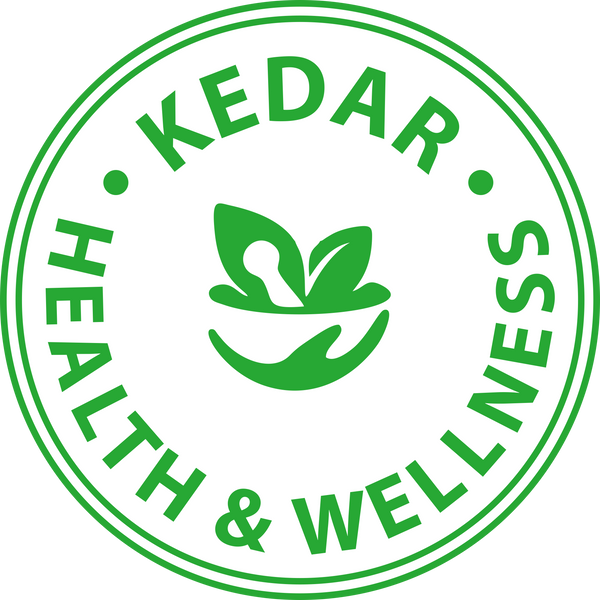
VEGANUARY - WHAT IS IT?
Share
What Is Veganuary?
Launched in 2014, Veganuary encourages you to consume only plant foods for the month of January. The movement began from a desire to protect the environment, prevent animal suffering, and improve the health of millions of people.
All you have to do to join the challenge is sign up on Veganuary's website. Anyone can do Veganuary, and it's no big deal if you're a little late to the plant-based party. In 2022, more than 620,000 people signed up to try the diet.

What Does it Mean to Be Vegan?
Going vegan is more of a lifestyle change because of compassion for animals, the environment, and everyone's health—it's not simply a diet change. Vegans select from a large variety of vegetables, legumes, whole grains, fruits, nuts, seeds, and plant-based alternatives to prepare meals. Here's a sample of the changes vegans make:
- Products made from almonds, coconut, oat or soy instead of cow's or goat's milk
- Beans, nuts, and peas, instead of protein from meat, fish, or eggs
- Cane sugar, dates, or molasses instead of honey
- Agar-agar instead of gelatin
- Choosing organic, non-GMO, local, fair trade, and sustainable foods when possible
- Clothing, shoes, and textiles (such as blankets, pillows, and rugs) made of synthetic or natural non-animal materials like cotton, rayon, linen, rubber, spandex, and nylon instead of wool, silk, fur, leather, or down
- Shampoo, cosmetics, and soaps that don't contain animal substances
- Jewelry that doesn't contain animal parts like pearls, shells, bones, and feathers
- Not participating in hunting or sports where animals are used, like animal racing or fighting and fishing
For someone who is just starting, this might seem like a daunting list, but there are just as many—if not more—foods you can eat: all fruits, vegetables, beans, tofu, tempeh, nuts, seeds, and whole grains, for starters.
How can you be sure you're not eating animal products? The confusion is most likely to come if you're eating prepackaged foods, so you have to get into the habit of checking the ingredients list to make sure there are no animal-derived ingredients.

Vegan packaged foods are usually labeled with a 'suitable for vegans' or 'certified vegan' logo. Also, if the product contains dairy, eggs, or seafood, it will be listed under its allergen list. The best thing to do is to cook your own food so you know what's going into it or eat as much fresh foods as possible.
Potential Benefits of Veganuary
The goal of Veganuary isn't weight loss; but, you might find that you do lose weight—whether you want to or not—if you don't keep an eye on your food intake.
"Rather than focus on cutting out animal foods, focus on what you will add to your diet," says nutritionist and certified personal trainer Mckenzie Flinchum, RD. And always keep nutrients at the forefront of your mind. "Make sure to replace the animal foods with plant-based foods rather than simply eliminate them," said Flinchum. "This is a way to ensure that calorie needs are met."
This mindset should come in handy if you're a committed carnivore; no doubt about it, following a vegan diet is more difficult if you're used to eating meat with every meal. Think about what you're gaining (new flavours, new recipes, and a ton of veggies you might not even have heard of before) rather than what you're missing out on.
Another health benefit: A study comparing vegans and vegetarians to omnivores (meat and veggie eaters) found that vegans had the highest intake of dietary fibere and vitamin K and the lowest levels of saturated fatty acids and cholesterol.
Potential Drawbacks of Going Vegan
Getting all the nutrients you need from these food categories, however, may not be so simple. In the same study, vegans had the lowest intake of energy, monounsaturated fatty acids (the good kind), as well as the lowest levels of vitamins B12, B2, and D.5
"The biggest nutrient deficiency concern with veganism is vitamin B12, which is found in animal foods," said Flinchum. "B12 deficiency can lead to anemia."
Unless you are eating fortified vegan products to meet your nutrition needs, try taking a supplement. Vitamin D, omega-3 fatty acids, calcium, iodine, and iron are other nutrients to pay attention to if you're eating a vegan diet. It's important to eat a large variety of fruits, vegetables, whole grains, nuts and seeds, plant-based oils, beans, and legumes in order to meet micronutrient needs.
What Should You Do If You Slip Up?
Don't beat yourself up if you accidentally eat something that contains dairy, or you take a not-so-accidental bite of your friend's hot dog. These things happen. Don't let anyone else make you feel bad about it, either—your diet is your business.
Some tips to help make it easy is to carry vegan snacks with you like fruit slices and granola bites so you always have something on hand.
What If I Can’t Cook?
There are usually vegan alternatives for common foods so you can give vegan cooking a try. Start with some easy vegan recipes, and you'll soon realise there's nothing complicated about vegan cooking. It's basically just delicious veggies, starches, whole grains, and so much more, packed with flavour and texture.
If your attempt to go vegan in January isn't as successful as you'd hoped, or you decide you just aren't into it enough to keep it going, no worries. Veganism isn't for everyone, and you can always give it a try again or go on a modified vegan diet that's a bit more forgiving.
But if Veganuary inspires you to go permanently plant-based (as it happened with my daughter) then we have a whole range of products at Kedar Health to help you on your journey!
Credit: Health.com
